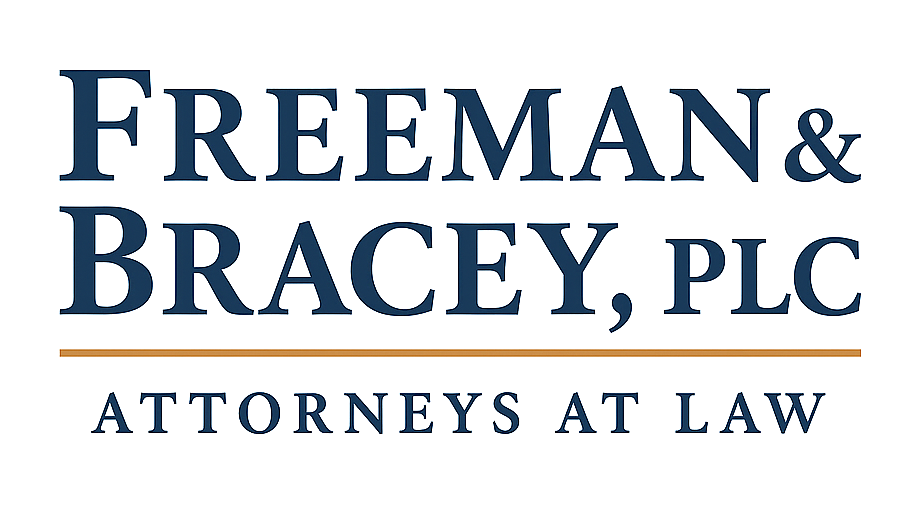Why Settlement Isn’t Always the Best Option
Russell Freeman | Aug 01 2025 18:00
Introduction
When people find themselves in the middle of a legal dispute, one of the first questions that comes up is, “Should I settle or go to court?” Settlements are often portrayed as the simpler, faster path—and in many cases, they are. But settlement isn’t always the right choice. Sometimes accepting an offer can leave you with less than you deserve or bind you to terms that don’t serve your best interests.
At Freeman & Bracey, PLC, we’ve helped clients across Middle Tennessee, including Davidson, Sumner & Robertson counties, weigh the pros and cons of settlement. Our goal is to ensure you make an informed decision that protects your rights and your future.
What Does “Settlement” Mean in Legal Cases?
A settlement is an agreement between opposing parties to resolve a dispute without going to trial. Typically, this means one side offers compensation or specific terms, and the other side agrees to accept them. Settlements are common in personal injury, contract disputes, family law cases, and many civil matters.
While settlements can save time and money, they also close the door to further negotiation once finalized. That’s why understanding what’s at stake is critical before signing anything.
Why This Issue Matters to You
Deciding whether to settle has serious consequences:
- Financial Impact: Accepting a settlement may mean walking away with far less than what a judge or jury might have awarded you.
- Legal Rights: Many settlements require you to waive your right to future claims, even if new issues arise.
- Personal Consequences: Settling too soon can leave you with ongoing stress, unpaid bills, or unresolved disputes.
In other words, settlement isn’t just about closing the case—it’s about protecting your long-term well-being.
Key Considerations Before Accepting a Settlement
- The Value of Your Case
- Do you know what your claim is truly worth? Insurance companies, businesses, and even opposing spouses may push for a low settlement to save themselves money.
- The Strength of Your Evidence
- If you have strong documentation—such as contracts, medical records, or witness statements—you may stand to gain more by pressing forward.
- Timing
- Early settlement offers are often strategic. The other side may be hoping you’ll accept less before you’ve had a chance to build your case.
- Future Implications
- In injury cases, will the settlement cover future medical expenses? In divorce, will it provide long-term stability for your children?
- Court Alternatives
- Mediation or continued negotiation may offer a better balance between speed and fairness.
Common Examples
- Personal Injury Case: After a car accident, the insurance company offers a quick $10,000 settlement. At first it seems fair, but months later the injured person realizes their medical bills total over $30,000. Accepting the early settlement would have left them with a huge financial burden.
- Business Dispute: A business owner is pressured to accept a settlement in a contract dispute. The offer doesn’t account for future losses, and by accepting, they give up their right to pursue additional damages.
- Divorce Agreement: One spouse agrees to a settlement without considering retirement accounts or hidden assets. Years later, they discover they gave up claims worth hundreds of thousands of dollars.
Issues Clients Often Face With Settlements
- Pressure from the opposing side or their attorneys
- Misunderstanding the fine print in legal documents
- Being told “this is the best you’ll get” when it isn’t true
- Emotional fatigue leading to rushed decisions
- Fear of the courtroom experience
- Lack of clarity about long-term consequences
These issues are exactly why many people later regret accepting a settlement without the guidance of an experienced attorney.
How Freeman & Bracey Helps Clients
Our attorneys help you navigate settlement decisions by:
- Evaluating the Offer – We analyze whether the settlement is fair and in your best interest.
- Explaining the Risks – We make sure you understand what rights you may be giving up.
- Negotiating on Your Behalf – We push for better terms when the initial offer falls short.
- Preparing for Trial if Needed – If a fair agreement can’t be reached, we’re ready to take your case to court.
- Supporting You Throughout
– From start to finish, we provide clear, honest advice so you feel confident in your decision.
Having strong legal counsel doesn’t mean you can’t settle—it means if you do, you’ll know it was the right move.
Protect Your Rights Before Signing Anything
Settlements can be the right solution in some cases, but not always. Before signing away your rights or accepting less than you deserve, talk to an experienced attorney who understands the stakes.
Contact Freeman & Bracey today to schedule a consultation. We proudly represent clients across Middle Tennessee, including Davidson, Sumner & Robertson counties.


